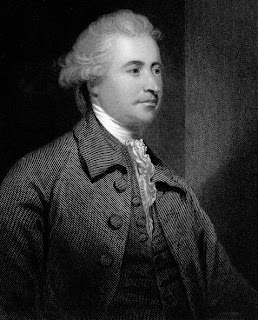 The current presidential election, the inanity of which persists at upsetting me on a daily basis, does not provide useful answers to these questions: 1) What is a reasonable set of criteria by which thoughtful citizens might evaluate a candidate for president? and 2) From a societal perspective, what are these elections - now posing as "national dialogs" - trying to resolve?
The current presidential election, the inanity of which persists at upsetting me on a daily basis, does not provide useful answers to these questions: 1) What is a reasonable set of criteria by which thoughtful citizens might evaluate a candidate for president? and 2) From a societal perspective, what are these elections - now posing as "national dialogs" - trying to resolve?This blog does not allow readers to post comments, but the Chief Digressor is interested to hear your insights regarding these two questions.
Here I will begin to look at the second of these two questions by setting out a conceptual definition of the term "conservative". In a later post, I will attempt an honest description of "liberal / progressive / radical". If liberal / progressive / radical readers would like to suggest a comprehensive definition, I will consider using it. I seriously doubt that I will ever write on the transient associations between ideological believers and their current party affiliation. What's the point?
Politics has a nasty way of taking a word that has one clear, impartial meaning and turning it into an emotion with several, but this obfuscation makes a meaningful discussion impossible. I am in favor of a debate grounded by shared terms, so let us start with the basics.
In 1953, Russell Kirk wrote what is now considered the indispensable history of modern conservatism, "The Conservative Mind: from Burke to Eliot". In it, he traces the philosophical and political history of conservatism in Great Britain and The United States, pointing out along the way that only these two "among the great nations, have escaped revolution since 1790", a stability he attributes to the conservative nature of these cultures.
Here is Kirk's summary of what "a conservative" believes:
[...] the essence of social conservatism is preservation of the ancient moral traditions of humanity. Conservatives respect the wisdom of their ancestors; they are dubious of wholesale alteration. They think society is a spiritual reality, possessing an eternal life but a delicate constitution: it cannot be scrapped and recast as if it were a machine. "What is conservatism?" Abraham Lincoln inquired once. "Is it not adherence to the old and tried, against the new and untried?" It is that, but is more. I think that there are six canons of conservative thought:
1) Belief in a transcendent order, or body of natural law, which rules society as well as conscience. Political problems, at bottom, are religious and moral problems. A narrow rationality, what Coleridge called the Understanding, cannot of itself satisfy human needs. "Every Tory is a realist, " says Keith Feiling: "He knows that there are great forces in heaven and earth that man's philosophy cannot plumb or fathom." True politics is the art of apprehending and applying the Justice which ought to prevail in a community of souls.
2) Affection for the proliferating variety and mystery of human existence, as opposed to the narrowing uniformity, egalitarianism, and utilitarian aims of most radical systems; conservatives resist what Robert Graves calls "Logicalism" in society. This prejudice has been called "the conservatism of enjoyment" - a sense that life is worth living, according to Walter Bagehot "the proper source of an animated Conservatism."
3) Conviction that civilized society requires orders and classes, as against the notion of a "classless society." With reason, conservatives often have been called "the party of order." If natural distinctions are effaced among men, oligarchs fill the vacuum. Ultimate equality in the judgment of God, and equality before courts of law, are recognized by conservatives; but equality of condition, they think, means equality in servitude and boredom.
4) Persuasion that freedom and property are closely linked: separate property from private possession, and Leviathan becomes master of all. Economic leveling, they maintain, is not economic progress.
5) Faith in prescription and distrust of "sophisters, calculators, and economists" who would reconstruct society upon abstract designs. Custom, convention, and old prescription are checks both upon man's anarchic impulse and upon the innovator's lust for power.
6) Recognition that change may not be salutary reform: hasty innovation may be a devouring conflagration, rather than a torch of progress. Society must alter, for prudent change is the means of social preservation; but a statesman must take Providence into his calculations, and a statesman's chief virtue, according to Plato and Burke, is prudence.
Portrait above is of Edmund Burke (1729-1797). I'm sorry that I do not know the artist. I didn't paint it, I assure you.